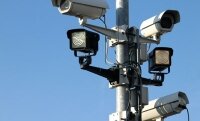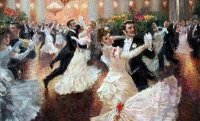Ruefle • Hemery • Frame
Selected Poems by Mary Ruefle
© 2010, Wave Books
154 pages, Hardcover
Though Mary Ruefle’s poems bear little influence of Frost, perhaps no contemporary American poet better embodies the great bard’s famous adage that a poem “begins in delight and ends in wisdom.” The recent recipient of the 2011 William Carlos Williams Award, Ruefle’s Selected Poems is a long, engrossing study in astonishment. Indeed, it is impossible not to read many, if not all, of her poems as testaments to the imagination, as when the speaker in “Nice Hands” reflects on being five years old:
my brain was a lightbulb that flickered on and off,
my soul was a milk bottle yearning to be full,
my stomach, made of concrete, had a long wooden table
where six dressed kittens sat, holding up their bowls.
To say that Ruefle’s work captures the meditative interiority of Dickinson, the kinetic associativeness of Breton, and the emotional frankness of Plath would shortchange Ruefle’s iconic and distinct magic, which is vast. Though her tone of hushed contemplation has remained largely unchanged through ten volumes of verse, Ruefle is a rare spirit among us, for she transcends our petty aesthetic camps with a voice that is simultaneously private and universal. Perhaps “Standing Furthest,” an early poem that opens this retrospective collection, best captures Ruefle’s quiet wonder:
of all things standing furthest
from what is real, stand these trees
shaking with dispensable joy,
or those in their isolation
shading an extraordinary secret.
Her Selected Poems is now available in paperback, but kudos are due to the good folks at Wave Books for not only publishing the initial volume in hardcover, but for their exquisitely crisp and understated design. If ever there was a poetry collection worth owning in hardcover, this is surely it.
No Permanent Scars by Michael Hemery
©2011, Silenced Press
292 Pages, Paperback
The essays in Michael Hemery’s debut collection No Permanent Scars—published earlier this spring by Silenced Press—are a potent reminder of the young heart’s elasticity, for Hemery renders his working-class upbringing in suburban Ohio with equal parts wit, frankness, and rumination. Whether he’s writing about being propositioned by a prostitute outside an office supply store, a neighbor savaging a dog within a few gasps of its life, or the smell of printing press ink infused in his father’s hair, Hemery renders experience with cinematic acuity.
These are no mean feats for an emerging essayist. Perhaps what is more remarkable, however, is how vigilantly Hemery circumnavigates the common tropes and predictable pitfalls of the creative nonfiction genre, as his punning title suggests. When he turns his interrogative gaze to the Indian summers of childhood, the anxious anticipation of a being a first-generation college student, or the litany of burdens that befall a new father, Hemery’s pathos is always framed by a beguiling, if at times grim, sense of humor, and tempered by a worldliness that ultimately reaches beyond the self in order to anchor the self in our wider human narrative.
Hemery’s prose is clean without sterilization, articulate without pedantry, boyish without naivety, and above all else, candid without bathos. It is a style rooted in the elemental charm of the well-hewn English sentence, and apart from the occasional overabundance of fragments for dramatic effect, Hemery’s prose remains supple and understated throughout. No Permanent Scars is not merely a testament to the fortitude of small independent publishers, but it is also a testament to Hemery’s rare gift to capture the wild rollicks of this life, bruises and all.
Paper Guillotines by Anthony Frame
©2010, Imaginary Friend Press
21 Pages, Paperback
In his exquisite dedication poem to Emprise Review contributor Anthony Frame’s debut chapbook, the inimitable Jim Daniels writes, “No amount of practice prepares us/for opening our mouths in horror.” Such lines are a fitting introduction to the political ferocity and desperate Ohio landscapes that mark Frame’s tightly-knit narratives in Paper Guillotines.
While one or two of the shorter poems never seem to find themselves, such as “Titled Withheld ‘Til Later,” Frame’s mature and searching voice conjures the righteous invective of early Auden and the terse muscularity of middle-era James Wright. The result is a volume that not only sustains its stoic anti-war theme, but develops it with nuance and perspective, and resists the temptation to devolve into haughty moralizing or clichés.
Unlike many young poets inspired by the headlines, Frame mines our milieu of globalism while simultaneously delving that most universal of themes, the ache of grief, and poems such as “World News,” “K,” “Hold for 8 Seconds,” and “Thirteen Things My Military Students Tell Me That They Can’t Tell Their Parents” are proof of his unflinching gaze. One wonders how Imaginary Friend Press can offer Frame’s chapbook for a mere $7—including shipping, no less—but it is worth every penny…and then some.







